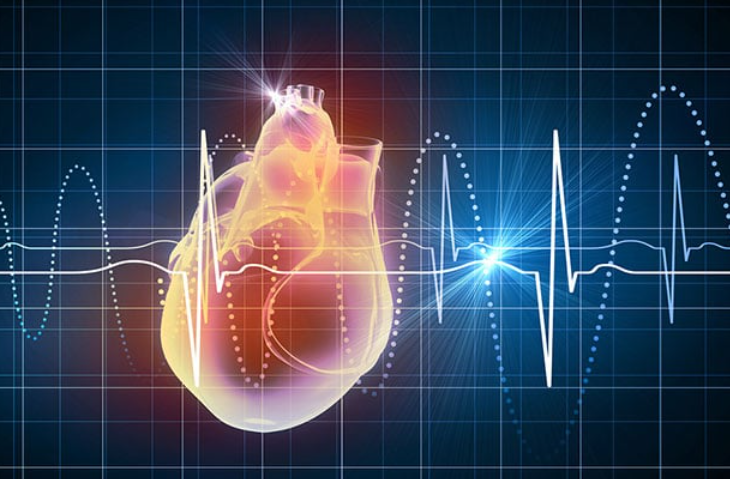For women, understanding what constitutes a normal heart rate is a crucial aspect of monitoring overall health. While general guidelines exist, several factors can influence your heart rate, and recognizing these nuances can empower you to better understand your body. As an SEO expert specializing in comprehensive health content, I've broken down everything you need to know about heart rates, specifically tailored for women.
What is a “Normal” Heart Rate for Women?
Geerally, a normal resting heart rate for adults, including women, ranges from 60 to 100 beats per minute (bpm). This is the number of times your heart beats per minute when you're at rest, such as when you first wake up in the morning or are relaxing quietly.
However, “normal” isn't a one-size-fits-all number. Your ideal resting heart rate can be influenced by:
- Age: Heart rate tends to decrease slightly with age.
- Fitness Level: Athletes often have lower resting heart rates (sometimes as low as 40-60 bpm) due to their efficient cardiovascular systems.
- Activity Level: Your heart rate will naturally increase during exercise.
- Emotions: Stress, anxiety, or excitement can temporarily elevate your heart rate.
- Medications: Certain drugs can affect heart rate.
- Underlying Health Conditions: Conditions like thyroid disorders or heart disease can impact heart rate.
Why Do Women Need to Pay Special Attention to Heart Rate?
While the general range for a normal heart rate is similar for men and women, there are specific considerations for women:
- Hormonal Fluctuations: Throughout a woman's life, hormonal changes, such as those during the menstrual cycle, pregnancy, and menopause, can influence heart rate. For instance, heart rate may slightly increase during ovulation.
- Pregnancy: During pregnancy, a woman's blood volume increases significantly, leading to a natural increase in resting heart rate to support the growing fetus.
- Cardiovascular Disease Risk: While often perceived as a male disease, heart disease is the leading cause of death for women. Monitoring heart rate, along with other cardiovascular risk factors, is essential for early detection and prevention.
- Smaller Heart Size: On average, women have smaller hearts and narrower blood vessels than men, which can sometimes influence cardiovascular responses.
How to Measure Your Heart Rate Accurately
Measuring your heart rate is simple:
- Find your pulse: Place your index and middle fingers on your wrist (radial artery, on the thumb side) or on your neck (carotid artery, just to the side of your windpipe).
- Count the beats: Count the number of beats you feel in 15 seconds.
- Calculate: Multiply that number by four to get your beats per minute.
For the most accurate resting heart rate, measure it first thing in the morning before you get out of bed or after at least 10 minutes of quiet rest. Wearable fitness trackers can also provide continuous heart rate monitoring, offering valuable insights into your trends over time.
When Is a Heart Rate Considered Abnormal?
While slight variations are normal, consistently high or low heart rates can be a sign of an underlying issue.
High Heart Rate (Tachycardia): A resting heart rate consistently above 100 bpm could indicate:
- Stress or anxiety
- Dehydration
- Fever
- Anemia
- Overactive thyroid (hyperthyroidism)
- Arrhythmias (irregular heart rhythms)
- Heart disease
Low Heart Rate (Bradycardia): A resting heart rate consistently below 60 bpm (unless you are an athlete) could suggest:
- Underactive thyroid (hypothyroidism)
- Certain medications
- Heart conditions, such as heart block
- Electrolyte imbalances
Beyond Just the Number: Holistic Health Assessment
It's crucial to remember that your heart rate is just one piece of the puzzle when assessing your overall health. Don't focus solely on the number. Instead, consider it in conjunction with other vital signs and lifestyle factors:
- Blood Pressure: High blood pressure often has no symptoms but significantly increases the risk of heart disease and stroke.
- Cholesterol Levels: High levels of “bad” cholesterol (LDL) can lead to plaque buildup in arteries.
- Blood Sugar Levels: Uncontrolled blood sugar (as in diabetes) can damage blood vessels and nerves that control the heart.
- Lifestyle: Diet, exercise, sleep quality, and stress management all play a significant role in cardiovascular health.
- Symptoms: Pay attention to symptoms like chest pain, shortness of breath, dizziness, or fainting, regardless of your heart rate. These warrant immediate medical attention.
Your body provides many signals, and understanding your heart rate trends can be a valuable tool. However, it should always be interpreted in the context of your overall health and in consultation with a healthcare professional. They can help you understand what your heart rate means for you and whether any further investigation is needed.
Frequently Asked Questions (FAQ)
Q1: What is a good heart rate for a woman when exercising?
A: Your target heart rate during exercise depends on your age and fitness level. A general guideline for maximum heart rate is 220 minus your age. For moderate-intensity exercise, aim for 50-70% of your maximum heart rate. For vigorous intensity, aim for 70-85%. Consult with your doctor or a fitness professional for personalized recommendations.
Q2: Can stress affect a woman's heart rate?
A: Yes, stress and anxiety can significantly increase a woman's heart rate. When you're stressed, your body releases hormones that prepare you for “fight or flight,” leading to a temporary increase in heart rate and blood pressure. Chronic stress can have long-term negative impacts on cardiovascular health.
Q3: Is it normal for a woman's heart rate to fluctuate throughout the day?
A: Absolutely. Heart rate naturally fluctuates throughout the day based on your activity level, emotions, hydration, and even the time of day. It will be lower when you're resting and higher when you're active or under stress.
Q4: When should a woman be concerned about her heart rate?
A: You should consult a doctor if your resting heart rate is consistently above 100 bpm or below 60 bpm (unless you're a highly trained athlete). Also, seek medical attention if you experience symptoms like chest pain, shortness of breath, dizziness, lightheadedness, or fainting, regardless of your heart rate.
Q5: Can menopause affect a woman's heart rate?
A: Yes, menopause can affect a woman's heart rate. Hormonal changes during menopause, particularly fluctuating estrogen levels, can sometimes lead to heart palpitations (a feeling of your heart racing or pounding) and a slight increase in resting heart rate. It's important to discuss any new or concerning heart symptoms with your doctor during this time.









